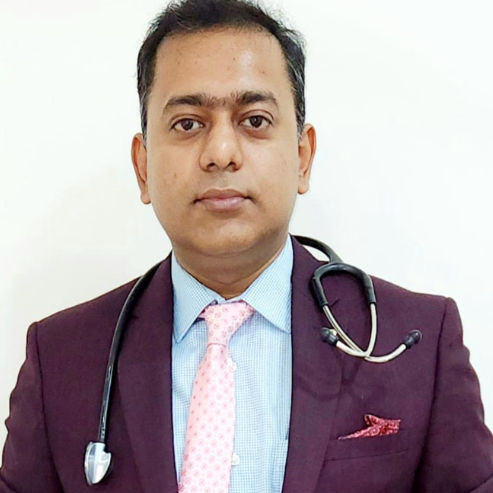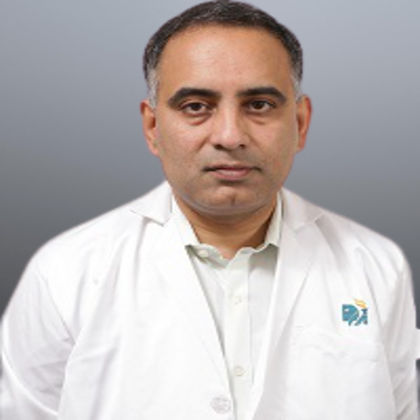Head and Neck Cancer Overview
Know about head and neck cancer, types, symptoms and causes. Learn about the diagnosis, treatment options and lifestyle changes for cancer management and more.

Written by Dr. Rohinipriyanka Pondugula
Reviewed by Dr. Dhankecha Mayank Dineshbhai MBBS
Last updated on 7th Aug, 2025

Introduction
Facing a diagnosis of head and neck cancer can be overwhelming, but understanding the condition can help you take the right steps toward treatment and recovery. This guide will explain what head and neck cancer is, its symptoms, causes, and ways to manage it effectively.
What Is Head and Neck Cancer?
Head and neck cancer refers to a group of cancers that develop in the mouth, throat, nose, sinuses, salivary glands, or lymph nodes in the neck. These cancers usually begin in the cells that line the moist surfaces inside the head and neck (squamous cells).
Consult a top cancer specialist for the best advice
Common Types of Head and Neck Cancer
The head and neck cancer types include:
- Oral Cancer – Affects the lips, tongue, gums, and inner cheeks.
- Laryngeal Cancer – Occurs in the voice box (larynx).
- Pharyngeal Cancer – Develops in the throat (pharynx).
- Nasal and Sinus Cancer – Affects the nasal cavity and sinuses.
- Salivary Gland Cancer – Occurs in the glands that produce saliva.
Symptoms of Head and Neck Cancer
Early detection is crucial for successful treatment. Watch out for these common signs:
- A persistent sore throat that doesn’t go away
- Difficulty swallowing or pain while chewing
- A lump or sore in the mouth, neck, or throat that doesn’t heal
- Hoarseness or voice changes lasting more than a few weeks
- Unexplained weight loss
- Ear pain without an infection
- Nosebleeds or persistent nasal congestion
- White or red patches in the mouth
If you notice any of these symptoms for more than two weeks, consult a doctor.
What Causes Head and Neck Cancer?
Several risk factors increase the chances of developing head and neck cancer:
1. Tobacco Use – Smoking cigarettes, cigars, or using smokeless tobacco (like chewing tobacco) is the biggest risk factor.
2. Alcohol Consumption – Heavy drinking significantly raises the risk, especially when combined with tobacco.
3. HPV Infection – Certain strains of the human papillomavirus (HPV), especially HPV-16, are linked to throat cancer.
4. Poor Oral Hygiene – Neglecting dental care can increase the risk of oral cancers.
5. Exposure to Certain Chemicals – Workplace exposure to asbestos, wood dust, or paint fumes may contribute.
6. Sun Exposure – Prolonged sun exposure can lead to lip cancer.
How Is Head and Neck Cancer Diagnosed?
If your doctor suspects head and neck cancer, they may recommend:
- Physical Examination – Checking for lumps, sores, or abnormalities.
- Endoscopy – A thin, flexible tube with a camera is used to examine the throat and nasal passages.
- Biopsy – A small tissue sample is taken to test for cancer cells.
- Imaging Tests – CT scans, MRIs, or PET scans help determine the cancer’s location and spread.
Early diagnosis improves treatment success, so don’t delay getting checked if you have concerning symptoms.
Treatment Options
Treatment depends on the cancer’s type, stage, and location. Common approaches include:
1. Surgery – Removing the tumor and affected tissue.
2. Radiation Therapy – Using high-energy rays to kill cancer cells.
3. Chemotherapy – Drugs to destroy cancer cells or stop their growth.
4. Targeted Therapy – Drugs that specifically attack cancer cells without harming normal cells.
5. Immunotherapy – Boosting the immune system to fight cancer.
Your doctor will create a personalized treatment plan based on your condition.
Lifestyle Changes to Support Recovery
Managing head and neck cancer involves medical treatment and healthy lifestyle adjustments:
1. Quit Smoking and Limit Alcohol
- Smoking and alcohol worsen cancer risks and interfere with treatment. Seek support to quit if needed.
2. Maintain Good Oral Hygiene
- Brush and floss regularly.
- Visit your dentist for check-ups.
3. Eat a Nutritious Diet
- Soft, easy-to-swallow foods help if chewing is difficult.
- Stay hydrated and include protein-rich foods for healing.
4. Manage Side Effects
- For dry mouth then sip water frequently or use saliva substitutes.
- If it is difficult to swallow then try blended or liquid meals.
- In case of fatigue then rest when needed and engage in light activity.
5. Emotional Support
- Join a support group or talk to a counselor.
- Stay connected with loved ones for encouragement.
When to Seek Help?
If you or a loved one experiences persistent symptoms like unexplained lumps, voice changes, or swallowing difficulties, don’t ignore them. Early detection saves lives.
Final Thoughts
Head and neck cancer is treatable, especially when caught early. By recognizing symptoms early, making healthy lifestyle changes, and following medical advice, you can improve outcomes and quality of life.
Consult a top cancer specialist for the best advice
Consult a top cancer specialist for the best advice

Dr Sunita Samleti
Oncologist
18 Years • M.D. (Pathology)- TN Medical College, Mumbai University, Mumbai, Mar 2005 M.B.B.S. Grant Medical College, Mumbai University, Mumbai, Oct 1999
Chinagadila
Apollo Hospitals Health City Unit, Chinagadila

Dr Gowshikk Rajkumar
Oncologist
10 Years • MBBS, DMRT, DNB in Radiation oncology
Bengaluru
Apollo Clinic, JP nagar, Bengaluru

Dr. Sanchayan Mandal
Oncologist
17 Years • MBBS, DNB Raditherapy, DrNB Medical Oncology
East Midnapore
VIVEKANANDA SEBA SADAN, East Midnapore

Dr.sanchayan Mandal
Oncologist
17 Years • MBBS, DrNB( MEDICAL ONCOLOGY), DNB (RADIOTHERAPY),ECMO. PDCR. ASCO
Kolkata
Dr. Sanchayan Mandal Oncology Clinic, Kolkata

Dr. Raja T
Oncologist
20 Years • MBBS; MD; DM
Chennai
Apollo Hospitals Greams Road, Chennai
(175+ Patients)
Consult a top cancer specialist for the best advice

Dr Sunita Samleti
Oncologist
18 Years • M.D. (Pathology)- TN Medical College, Mumbai University, Mumbai, Mar 2005 M.B.B.S. Grant Medical College, Mumbai University, Mumbai, Oct 1999
Chinagadila
Apollo Hospitals Health City Unit, Chinagadila

Dr Gowshikk Rajkumar
Oncologist
10 Years • MBBS, DMRT, DNB in Radiation oncology
Bengaluru
Apollo Clinic, JP nagar, Bengaluru

Dr. Sanchayan Mandal
Oncologist
17 Years • MBBS, DNB Raditherapy, DrNB Medical Oncology
East Midnapore
VIVEKANANDA SEBA SADAN, East Midnapore

Dr.sanchayan Mandal
Oncologist
17 Years • MBBS, DrNB( MEDICAL ONCOLOGY), DNB (RADIOTHERAPY),ECMO. PDCR. ASCO
Kolkata
Dr. Sanchayan Mandal Oncology Clinic, Kolkata

Dr. Raja T
Oncologist
20 Years • MBBS; MD; DM
Chennai
Apollo Hospitals Greams Road, Chennai
(175+ Patients)